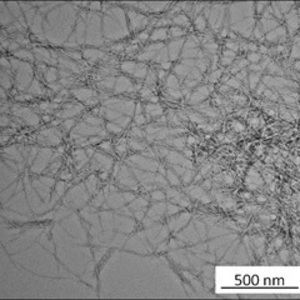API announces partnership to develop biobased auto components




American Process Inc.
November 18, 2014
BY American Process Inc.
American Process Inc. and Futuris Automotive recently formed a partnership with researchers at Georgia Institute of Technology, Clark Atlanta University, Swinburne University of Technology, and the USDA’s Forest Products Laboratory to develop ultra-strong, lightweight automotive structural components reinforced with nanocellulose. Nanocellulose is a rapidly emerging high performance nanomaterial extracted from trees. The goal of the project is to replace heavy steel structures within cars, such as the seat frames, with advanced reinforced polymers that have cost parity with traditional materials. The nanocellulose composites promise to be an economical substitute for expensive light-weight carbon fiber composites currently used in some luxury automobiles such as BMW’s all-electric i3.
That’s good news for consumers and the environment. According to the U.S. Department of Energy, reducing a vehicle’s weight by just 10 percent can improve fuel economy by 6-8 percent. The DOE has established a target vehicle weight reduction of 50 percent by 2050. The agency states that the limiting factor in use of lightweight materials in vehicles has been availability of sufficient quantities at affordable cost.
Advertisement
That’s where American Process Inc. comes in. Their proprietary manufacturing process makes renewable, low carbon footprint nanocellulose, which has strengths equivalent to Kevlar and prices similar to conventional polymers. American Process will begin commercial sales of nanocellulose by end of first quarter 2015, when their demonstration plant comes online in Georgia.
According to American Process CEO Theodora Retsina, “This new eco-material can both substitute and enhance the performance of petroleum-based plastics in an environmentally friendly and market competitive way. Carbon fibers are extremely strong and light but expensive to produce and used only in the highest end applications like aerospace and luxury vehicles. Nanocellulose has even lower weight than carbon fibers and is just as strong. With our manufacturing breakthrough, nanocellulose is a fraction of the price of carbon fibers. Cellulose is the most abundant natural organic material on Earth and it’s renewable and compostable. We didn’t invent nanocellulose, we made it less expensive, more thermally stable at high temperatures, and gave it functionality to blend with hydrophobic polymers – thereby enabling market applications and opening the road to commercial production.”
Advertisement
According to Futuris’ CEO Mark De Wit, “Futuris continuously seeks out promising emerging technologies in materials science that can help fulfill our mission to provide innovative, high quality, and cost competitive automotive interior solutions. We sponsor R&D for the most exciting technologies, like nanocellulose, which, we believe, will lead to the development of cost effective composite materials that can challenge the latest advanced steels and other materials in terms of performance, manufacturability and cost.”
Related Stories
The U.S. Department of Energy Bioenergy Technologies Office (BETO) announced up to $23 million in funding to support research and development (R&D) of domestic chemicals and fuels from biomass and waste resources.
The U.S. DOE has announced its intent to issue funding to support high-impact research and development (R&D) projects in two priority areas: sustainable propane and renewable chemicals and algal system cultivation and preprocessing.
Sens. Sherrod Brown, D-Ohio, and Pete Ricketts, R-Neb., in August introduced the Renewable Chemicals Act, a bill that aims to create a tax credit to support the production of biobased chemicals.
The Chemical Catalysis for Bioenergy Consortium, a consortium of the U.S. DOE’s Bioenergy Technologies Office, has launched an effort that aims to gather community input on the development of new biomass processing facilities.
USDA on March 8 celebrated the second annual National Biobased Products Day, a celebration to raise public awareness of biobased products, their benefits and their contributions to the U.S. economy and rural communities.
Upcoming Events










